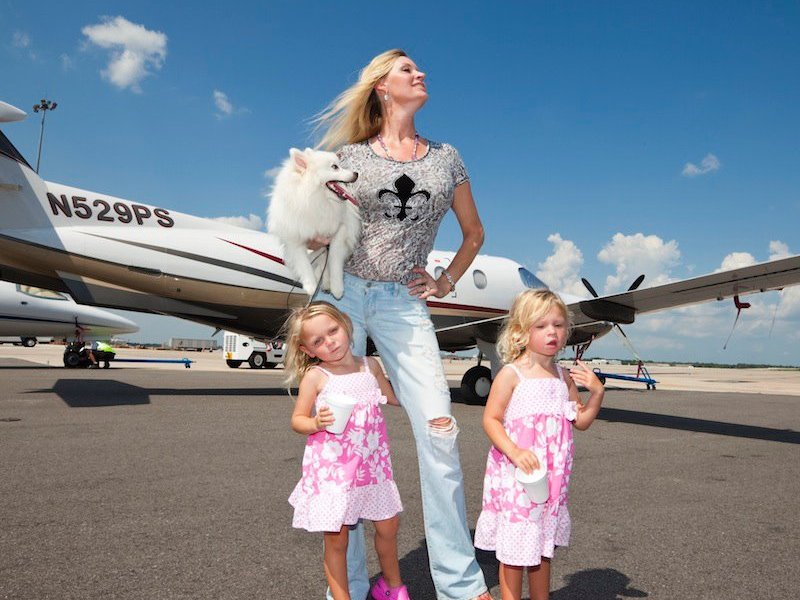This is no fairytale but it has a Queen, and that is Jackie- 30
years junior, trophy wife of the businessman David Siegel. The objective of
this documentary film was to witness the construction process of the biggest
house in America- a 90,000 square feet palace modeled on the Las Vegas version
of the French chateau of Versailles. When the answer to “Why are you building
the greatest family house in America?” is “Because I can,” we get a hint of the
lifestyle that these characters are used to. But the storyline changes
completely with the fall of the market and the burst of the real estate bubble,
when the Siegel family loses some of their millionaire possessions.
This film has a different impact on the viewer. At first, one condemns
the characters to satire and then with the sudden change of events, we learn to
look at them from another point of view. Who would think they could relate to a
billionaire family? But they weren’t born wealthy, they have a rags-to-riches
stories on their backs, and they personify the modern American dream.
The course of the film and incredible good timing manages to give a
twist to the story. In words of one of the eight Siegel kids: “There is nothing
normal about this life.”
Despite the over-the-top expenses and an outstanding social agenda, the eccentric
taste and uniqueness of Jackie Siegel is somehow magnetic and the extravaganza
of it all entertains. We get many different characters, such as the
nannies/full time mothers or the personal driver. And one of the most
charismatics: the head of the family- CEO of Westgate Resorts- someone who “can’t
separate business from personal.” During a period of cutbacks, the Siegels
insist that everything changes, but you can’t get by without the support of friends
and family.
Though the film-maker has been accused of manipulation, we get a close
reality-show like contact with that life. It gets so intimate that we might me
oddly moved by the story.
All in all, it is a contradiction of feelings that we encounter;
sympathy versus shadenfreude.
Lauren Greenfield was awarded the Sundance Film Festival Directing Award
in 2012 for her direction of this documentary. And it is well deserved. This
perspective of the economic crisis is narrated in a way never seen before.

I think this is a really good review. I particularly like how you discuss how the audience's perceptions of the Seigels changes as the film transitions.
ResponderEliminarGood observations, I agree with Nicole, it is smart that you discussed the audience's change in perception, especially with your opener "this is no fairytale but it has a queen." Clever!
ResponderEliminarI would like to see the last sentence, "This perspective of the economic crisis is narrated in a way never seen before" earlier in the review. I think it is a great opener, it would lead into a good transition.
I am not aware of the word "shadenfreude." But maybe that is just a word that I don't know, in any event I would be careful with that!
Oh, and I like your sarcasm, comparing David Siegal as "one of the most charismatics," it is a nice touch.
That's the point of this movie. It plays with the feelings of the audience, as we cannot really decide what to feel about this people, embarrasement for them, pity, even happiness or that shadenfreude you talk about.
ResponderEliminarThe best? The twists and the pace, as you say really well. We don't really know what's going to happen until it happens.
I think we had pretty similar perceptions on the film ;)
For those that were curious, schadenfreude, in general, means "the feeling of happiness when something bad happens (misfortune fall upon) to someone else"
ResponderEliminarI am really glad you used this term, actually, and wished I had used it in my article as it aptly and quickly expresses the conflicting feeling one gets when watching the fall of the Siegels. However, it could have helped if you had perhaps defined the word. I know it defeats the purpose, but that is the danger of using a word outside of an audience's general knowledge base.